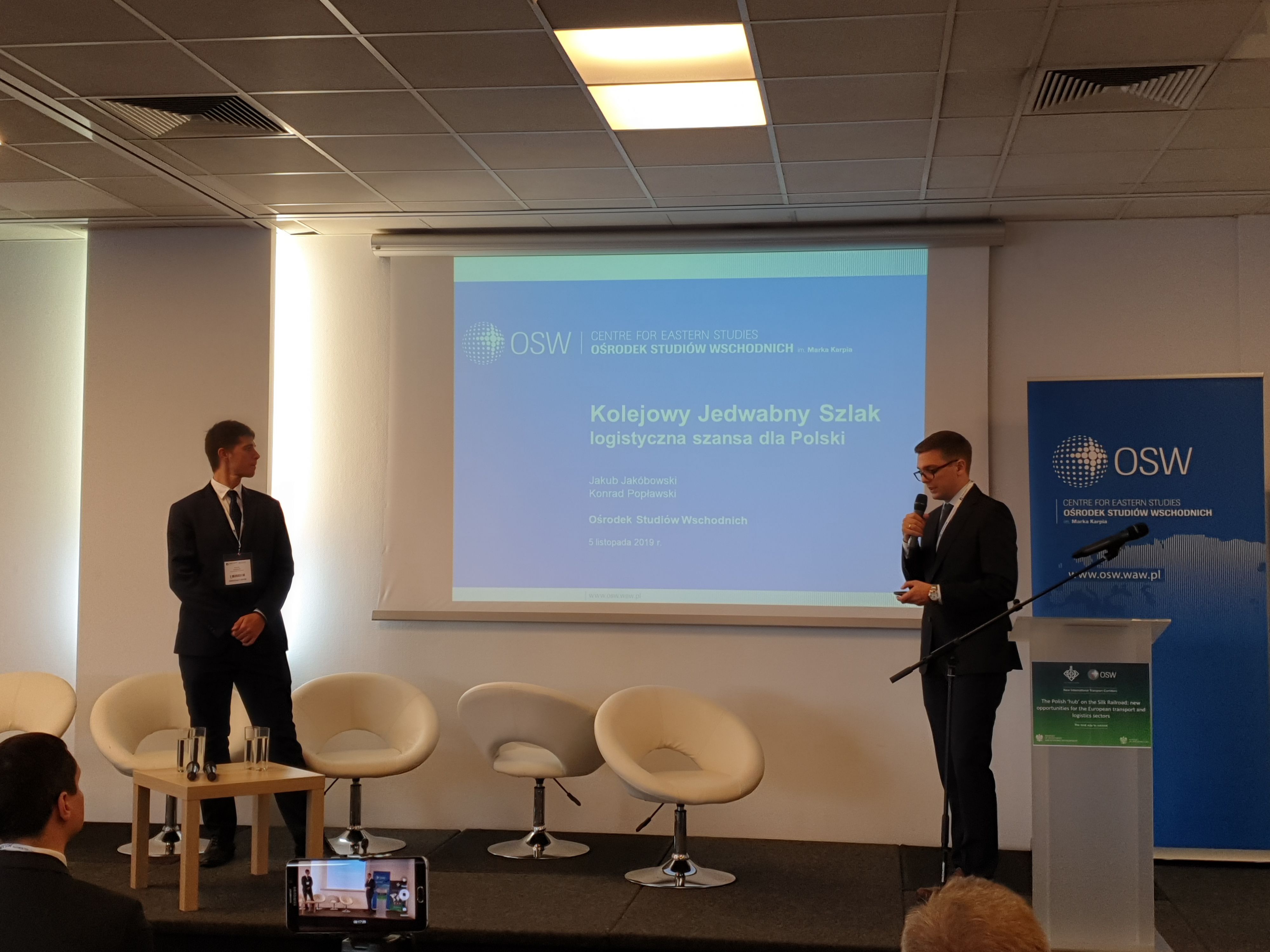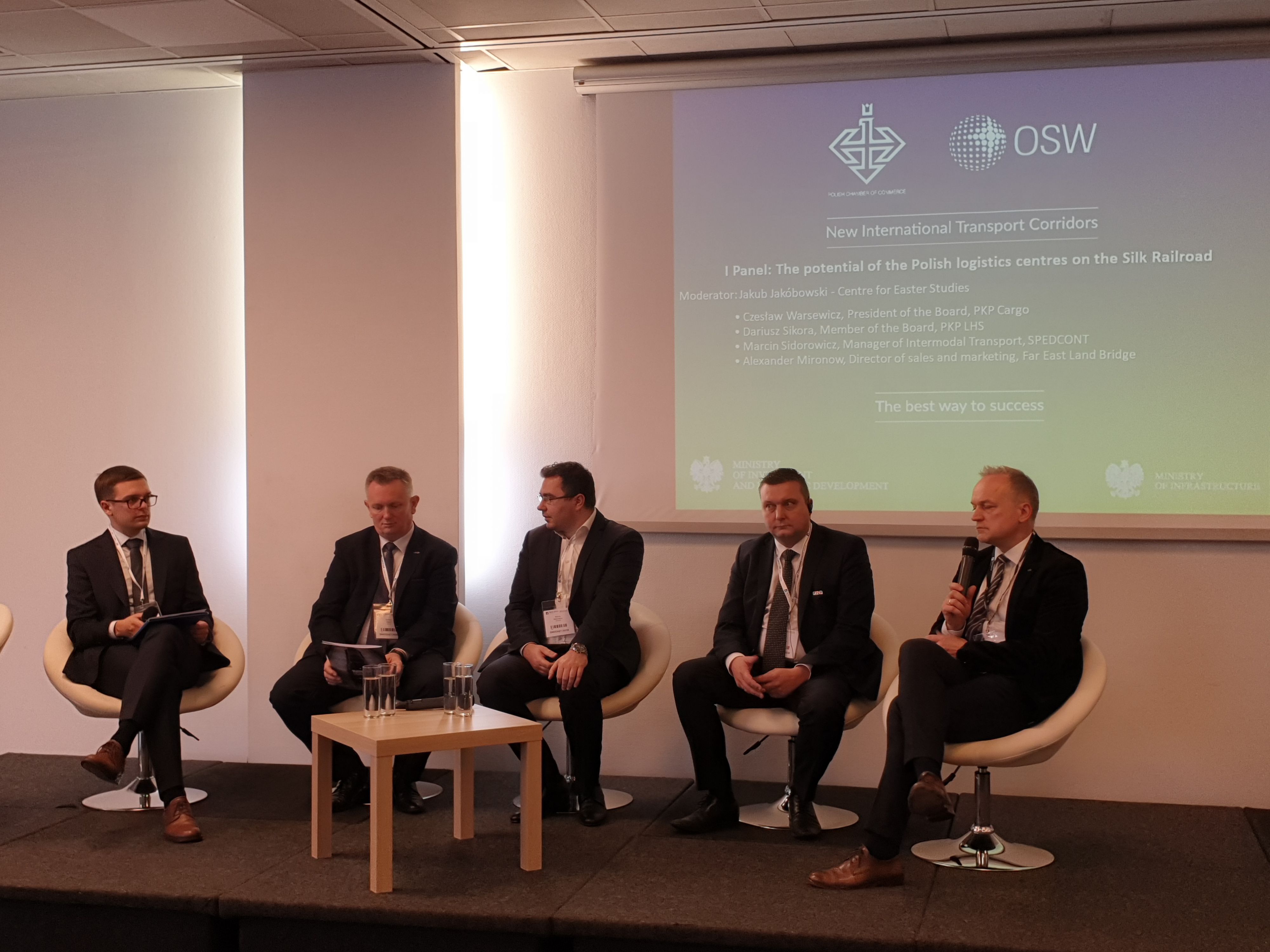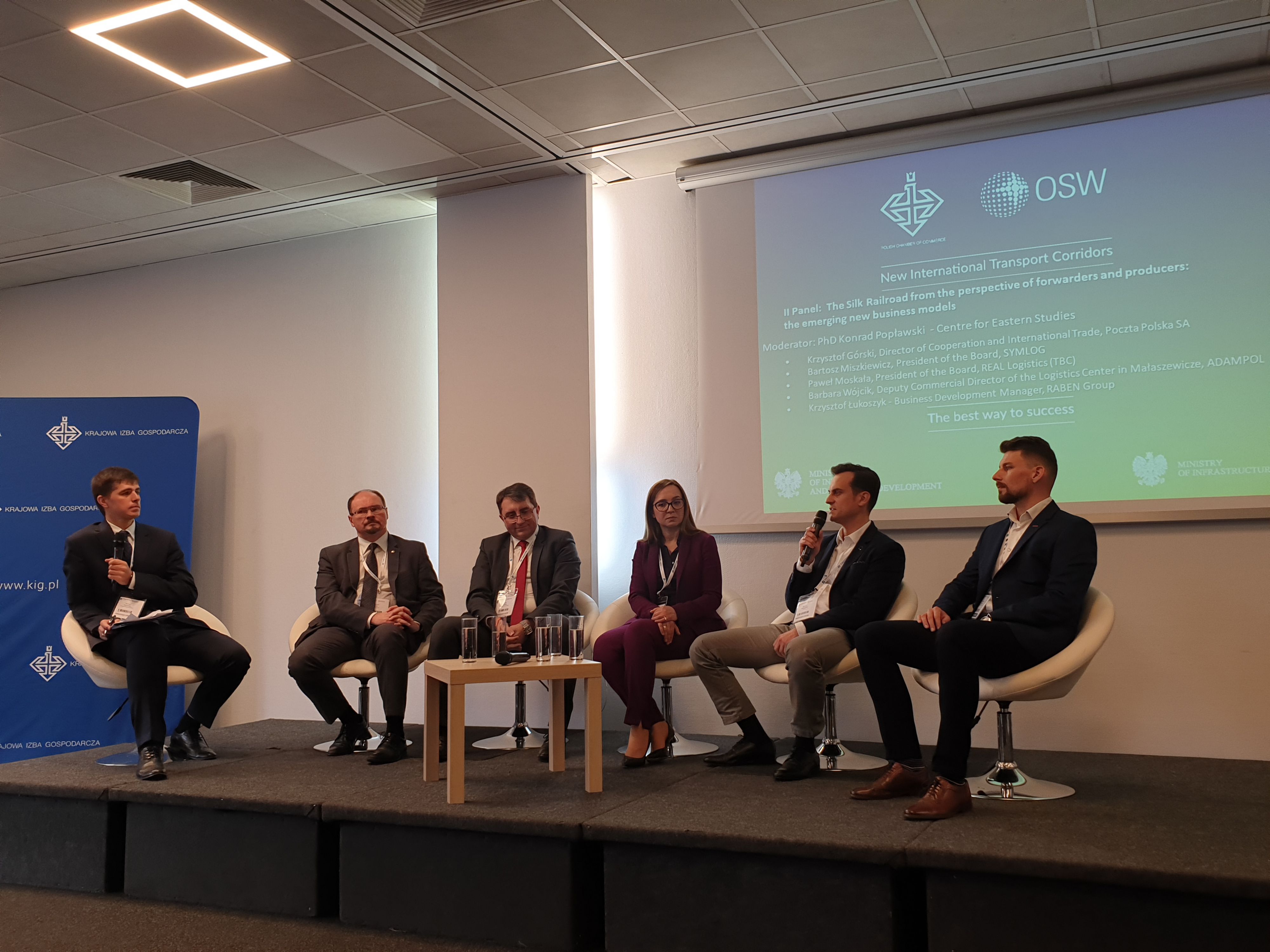The Centre for Eastern Studies, in cooperation with the National Chamber of Commerce (KIG) organised a conference entitled “The Polish ‘hub’ on the Silk Road Railroad – an opportunity for the European transport, shipping and logistics industry”. It was held on 5th November in Warsaw as an accompanying event to the TransLogistica Poland International Transport & Logistics Exhibition, which is one of the largest of its kind in Central Europe.
During the conference, new trends in the development of the Silk Road Railroad were presented. Emphasis was placed on the opportunities and challenges connected with Poland achieving the role of a logistics-distribution hub. Due to its geographical location and the significance of the dry port in Małaszewicze, Poland has become the main gateway to the EU for the land transport of goods from Asia. In the inaugural presentation, OSW experts Jakub Jakóbowski and Konrad Popławski pointed out that transit provides only a 5% share of the value added from the Asia-Europe-Asia rail link, while 95% of income is from services connected to logistics and the distribution of goods within the EU. In order for the Silk Road Railroad to translate into a development boost for the Polish economy, the role of “gateway to Europe” must become converted into the position of a crucial, regional logistics hub.
The first discussion panel, moderated by Jakub Jakóbowski, saw the participation of representatives of the transportation and intermodal industry. The potential of Polish logistics centres and the service of rail transport between Europe and Asia were discussed. With a market share of approximately 10%, Poland is becoming one of the main hubs for goods transported as part of the Asia-Europe-Asia rail link, and is able to compete with the logistics centres in Western Europe. This is helped by its geographical position and cost-competitiveness. However, in order to increase Poland’s position, coordinated activity from the administration and business is needed, including in the development of logistics centres – new intermodal terminals, warehouse space and services providing added value. The development of a network of intermodal connections with Central Europe, Scandinavia and the Balkans is crucial for their development. The panellists made the observation that Polish business should integrate and offer the complex, final logistics products on EU territory which business partners from Asia expect.
The second panel of the conference, led by Konrad Popławski, was on the subject of the perspective of freight forwarding companies. The participants pointed out that the Silk Road Railroad project is developing systematically and the effectiveness and punctuality of connections is improving. Rail shipments between Asia and Europe are becoming price competitive not only in comparison with air transport, but also with waterborne transport. It cannot be ruled out that China’s gradual withdrawal from subsidising connections will lead to those connections becoming more efficient, and their development will then take place on market terms. Polish reloading terminals could benefit from this. The condition for Poland to significantly increase its benefit from the Silk Road Railroad is not only the improvement of industry—customs and tax regulations also need more work. Despite an improvement, there are still barriers which block the take-over of the goods distribution services market on EU territory.
During the third panel, moderated by OSW’s deputy director Mateusz Gniazdowski, representatives of the state administration drew attention to the important advances in the activities of public institutions, aimed at strengthening Poland’s position as a hub on the Silk Road Railroad. They pointed to the expansion of road and rail infrastructure (including for north-south transport), to the improvement of how border crossings functions, and to the launch of the Tory24 system, which has improved the customs and tax regulations in the Małaszewicze dry port region. There was also discussion of the international cooperation in Central Europe and of multilateral formats such as the Three Seas Initiative, China-Central and Eastern Europe (17+1) and the Visegrad Group, which Poland will take over the presidency of in mid-2020. Besides the sizeable challenges linked to improving infrastructure and eliminating bottlenecks, mention was made of the need to create the appropriate regulations which would incentivise Polish and international logistics businesses to carry out tax and customs operations at Polish logistics centres. There was also a demand to better coordinate the activity of the administration and to develop closer cooperation in order to effectively build up Poland’s position on the Silk Road Railroad.




